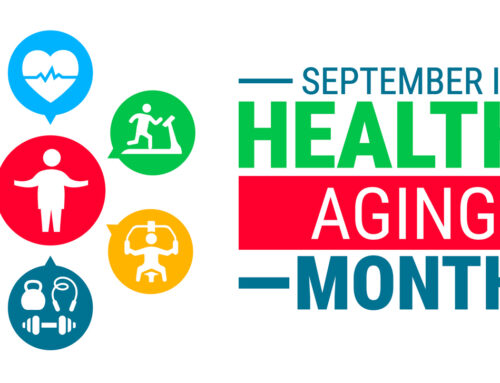While the holidays can be a wonderful time of the year for many people, they can also be lonely and anxiety-ridden for others. But what if we told you that your overall health will be better if you spend more time with friends and family (even your annoying uncle)? Research shows that people with strong ties to others live longer, happier and healthier lives. So, even if you are dreading the inevitable political conversation with your brother-in-law, that dialogue can actually be beneficial if you utilize some best practices. FirstLantic,the home care agency south Florida has some tips for not only surviving, (but thriving) during the holiday season this year.
Positive communication is one of the keys to a happy celebration. It doesn’t mean you can’t have some debates, but you need to do it in a way that creates a dialogue and not a diatribe. With the divisiveness in our country, there is bound to be some friction between family members as well. However, we could all use a lesson in listening more effectively and trying to see each other’s viewpoints. We know – it’s easier said than done but practice these five techniques and you might be surprised at the outcome.
Use active listening – listening is different from simply hearing. Active listening means that you are engaged, respectful and you ask questions if you want to clarify a point. A great approach can be to paraphrase what someone else says so that you can be sure that you heard them correctly and understood their intent and not just the words. In fact, why not try to listen more and talk less? This video will give you some great suggestions on how to do just that.
Put yourself in their shoes – at the end of the day, the world would be extremely boring if we all thought alike. At the same time, differing viewpoints don’t have to create a divide. It’s important to try to understand where the other person is coming from and why. What experiences have they had that makes them think differently from you? Is there a middle ground that you can both find on the topic? Life is a lot greyer than most of us want to admit, so take a deep breath and try to at least find the common denominators before you start to defend or argue your position.
Watch your body language – sometimes it’s not what you say but how you say it and that includes expressions like that fake smile, rolling your eyes or even that sarcastic tone of voice. All of these things can indicate to the other person that you’re not really open to their opinion and it can also create unnecessary tension for both of you. Remember, you don’t have an obligation to agree on everything, but you do owe the other person respect and civility.
Drink a little less – we are not suggesting that you can’t enjoy a nice glass of wine with dinner but too much alcohol can escalate aggressive emotions pretty quickly. If you sense yourself getting a little hot under the collar, try drinking a little more water and imbibing a little less. It can help you avoid those triggers that can ruin what could otherwise be a really special occasion.
Avoid the topic – when all else fails, avoid a topic that you know is going to lead to a heated argument. If someone tries to bait you into a conversation that you don’t want to have, simply tell them that you would prefer to discuss something else. If that doesn’t work, try peppering them with some questions about a topic they are passionate about i.e., work, sports, gardening or any subject to get them off the controversial topic. Some things are better left unsaid for the sake of a peaceful gathering.
For those of you that aren’t lucky (or unlucky enough) to have friends and family close by (depending on how you look at it), try to get out and socialize anyway. Whether it’s volunteering for the day at a shelter or attending a local dinner at the community center, we can almost guarantee that you will feel better by getting out of the house and meeting new people. Remember, your health could depend on it!
For some other suggestions on ways to make the most of your holidays, we have put together some additional resources below:
• 10 things to do during the holidays when you’re alone
• Building emotional resilience
• How to CELEBRATE the holidays alone
• Research on why social networks matter
• Health benefits of strong social bonds
• How social isolation can hurt your health
 AVAILABLE 24 HOURS A DAY/7 DAYS A WEEK
AVAILABLE 24 HOURS A DAY/7 DAYS A WEEK Careers
Careers







